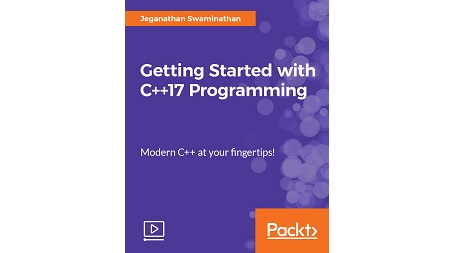
English | MP4 | AVC 1920×1080 | AAC 48KHz 2ch | 1h 41m | 454 MB
Take your C++ coding to the next level by leveraging its latest features and advanced techniques to build high-performing, reliable applications
C++ has come a long way and has now been adopted in several contexts. Its key strengths are its software infrastructure and resource-constrained applications. The C++ 17 release will change the way developers write code, and this course will help you master your developing skills with C++.
With real-world, practical examples explaining each concept, the course begins by introducing you to the latest features in C++17. It encourages clean code practices in C++ in general.
You’ll get tips on avoiding memory leaks using smart-pointers. Next, you’ll see how multi-threaded programming can help you achieve concurrency in your applications. Moving on, you’ll get an in-depth understanding of the C++ Standard Template Library.
Finally, we’ll round up with debugging techniques and best practices. By the end of the course, you’ll have an in-depth understanding of the language and its various facets.
This straightforward guide will help you level up your skills in C++ programming, whether for enterprise software or for low-latency applications such as games. Filled with real-world, practical examples, this video course will take you gradually up the steep learning curve that is C++.
What You Will Learn
- Write modular C++ applications using existing and newly introduced features
- Get acquainted with the new C++17 features
- Identify code-smells, clean up, and refactor legacy C++ applications
Table of Contents
C++17 Features
1 The Course Overview
2 C++ Background
3 Simplified static_assert
4 Template Type Auto-Deduction
Standard Template Library
5 The Standard Template Library Architecture
6 Containers and Functors
7 Array
8 Vector
9 List
10 Forward List
11 Deque
Associative Containers
12 Set
13 Map
14 Multiset and Multimap
15 Container Adapters
Template Programming
16 Function Templates
17 Overloading Function Templates
18 Class Template
19 Explicit Class Specializations
20 Partial Template Specialization
Smart Pointers
21 auto_ptr
22 unique_ptr
23 shared_ptr
24 weak_ptr
25 Issues with Raw Pointers
Resolve the captcha to access the links!